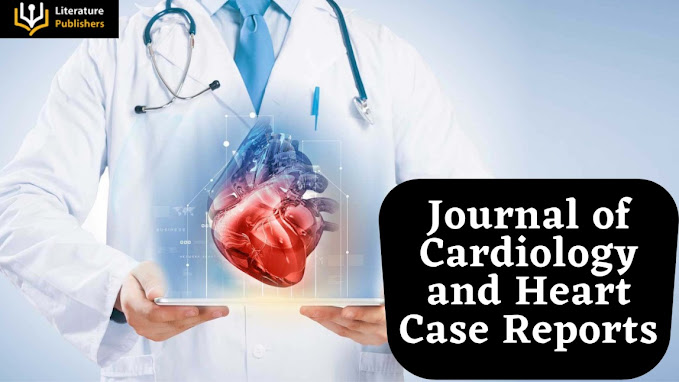Journal of Cardiology and Heart Case Reports
The Journal of Cardiology and Heart Case Reports conducted scientific studies on various cardiovascular disorders. Cardiology case reports identify heart-related disorders and provide detailed insights.
What is cardiology?
Cardiology is a medical specialty and is a branch of internal medicine related to heart disorders. It is related to the diagnosis and treatment of conditions such as congenital heart defects, coronary artery disease, electrophysiology, heart failure and valvular heart disease. Sub-specialties in the field of cardiology include cardiac electrophysiology, echocardiography, interventional cardiology, and nuclear cardiology.
Journal of Cardiology case reports
The journal of cardiology case reports focuses on the following topics: Cardiology, arrhythmias, atrial fibrillation, cardiac anesthesiology, cardiopulmonary resuscitation, and cardiopulmonary resuscitation. Heart Disease, Heart Failure, Hypercholesterolemia, Myocardial Infections, Neuro-Cardiology, Nuclear Cardiology, Pediatric Heart Disease and Stroke.
Neuro Cardiology
The feature associated with the brain-heart connection is known as neurocardiology. Neurocardiology is the pathology of the nervous and physiological interactions of the cardiovascular system. Baroreflex sensitivity and heart rate variability are important parameters for understanding the effect of autonomic nervous system on heart and brain activity.
Echocardiography
Echocardiography or echo is a painless test that uses sound waves to create moving pictures of your heart. The pictures show the shape and size of your heart. They also show how well your heart chambers and valves are working. Echoes may also indicate parts of the heart muscle that do not contract well due to poor blood flow or a previous heart attack.
Stroke
Stroke, also called cerebrovascular accident (CVA), cerebrovascular insufficiency (CVI), or stroke, is the death of cells when blood flow to the brain is impaired. There are two main types of stroke: ischemic due to lack of blood flow and hemorrhage due to hemorrhage. Signs and symptoms of a stroke may include inability to move or feel on one side of the body, difficulty understanding or speaking, feeling like the world is spinning, or loss of vision on one side.
Heart Failure
Heart failure is a condition in which the heart cannot pump enough blood to meet the body's needs. In some cases, the heart is not filled with enough blood. In other cases, the heart cannot pump blood to the rest of the body with sufficient force. Some people have both problems. The word "heart failure" does not mean that your heart has stopped or is about to stop working. However, heart failure is a serious condition that requires medical attention. The main cause of heart failure is heart damage. Examples include coronary heart disease (CHD), hypertension, and diabetes.
Arrhythmia
Arrhythmia is a heart related problem. In a rhythmic state, the heartbeat can be very fast, with a very slow or irregular rhythm. A very fast heartbeat is called tachycardia. A very slow heartbeat is called bradycardia. Most arrhythmias are harmless, but some can be serious or even fatal. During arrhythmia, the heart cannot pump enough blood into the body. Lack of blood flow can cause damage to the brain, heart and other organs.
Nuclear Cardiology
Nuclear medicine is a branch of medical imaging that uses a small amount of radioactive material to diagnose and exacerbate or treat diseases as well as to diagnose and diagnose a variety of cancers, heart disease, gastrointestinal, endocrine, neurological disorders and others. The body is useful for diagnosing and diagnosing coronary artery disease.
Atrial Fibrillation
Atrial fibrillation or AF is the most common type of arrhythmia. If a rapid, erratic electrical signal produces AF in the two upper chambers of the heart - called atria to fibrillation. The word "fibrillation" means to contract very quickly and irregularly. The word "fibrillation" means to contract very quickly and irregularly. In AF, the blood pool in the atrium. It is not completely pumped into the two lower chambers of the heart, called the ventricles.
Authors are requested to submit their manuscripts using the online manuscript submission portal:
https://www.literaturepublishers.org/submit.html
(Or) Journal is invited to submit via e-mail id:- editor.cicrj@literaturepublishers.org
More about information for journal of cardiology case reports coating then Visit our site - https://www.literaturepublishers.org/journal/journal-of-cardiology-case-reports.html




Comments
Post a Comment